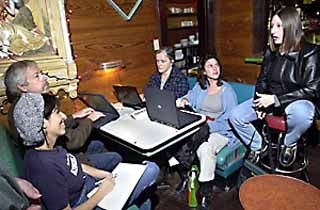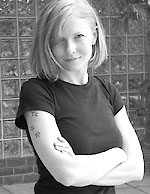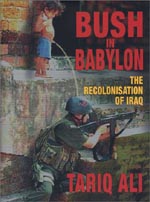Novel Writing: America's Latest Extreme Sport
National Novel Writing Month now competes with Veterans Day and Thanksgiving as the November celebration -- except that it lasts all month long and demands 50,000 words, or one novel, from its participants.
By Roger Gathman, Fri., Nov. 30, 2001

The Marquis de Sade wrote The 120 Days of Sodom on a 40-foot roll of toilet paper in the Bastille in a manic burst of energy. Simenon, the creator of Maigret, was known, in his early years, to pump out 80 pages a day. Jack Kerouac, nourished by his wife's pea soup and innumerable cups of coffee, wrote the "scroll" version of On the Road in 20 days on tracing paper that he Scotch-taped together to make a 120-foot-long banner. These are the unacknowledged ancestors of America's latest extreme sport -- novel writing. At least as it is practiced by the 5,000 or so who signed up for National Novel Writing Month, affectionately known to its fans by the awkward moniker, Nanowrimo. The brainchild of a West Coast freelancer, Chris Baty, National Novel Writing Month now competes with Veterans Day and Thanksgiving as the November celebration -- except that it lasts all month long, and demands 50,000 words, or one novel, from its participants.
This year the contest is enlivened by a nanowrimo apostle, Victoria Schlesinger. Schlesinger arrived (a little breathless but otherwise in good repair) to meet the Austin nanowrimo contingent at Spider House on the day before Thanksgiving. "I started in Washington, D.C., I'm moving back to California, so I thought I'd go across the country and meet up with various people who had signed up for the Month. We had an excellent turnout in Manhattan -- the 'Talk of the Town' guy from The New Yorker showed up. In Boston, we had more than 14 people." She's just come from New Orleans, where there was one person. In compensation, this one person took her around to meet literary New Orleans, including Andrei Codrescu.
Austin did better than New Orleans. The turnout of five was not bad for the day before a holiday. The group was recognizable from their glassy-eyed look and their oddly jockish tone. Nanowrimo people, it seems, have even developed a slang, like weight lifters. Howard Hawhee, whose previous books include a training guide to Visual Basic, claims that wordcount has now become a verb, as in, "I'm wordcounting," or, "Did you do wordcount?" Hawhee employed at least one of the techniques that has made him a successful tech writer for his November 50,000: "I made a spreadsheet beforehand." Indeed, he has an impressive graph displaying a comparison of word-per-day totals, as posted on the nanowrimo site (www.nanowrimo.com). His friend Regan Brown is also a writer. Perhaps her name destined her for literature: Her parents named her for one of the bad sisters in King Lear. Brown is also a published author (The Woman's Way: Celebrating Life After 40) but a frustrated fictionalist. "It sounded like fun and torture at the same time," she says. "I've always planned to write fiction, but I had all these excuses. I have an inner-editor problem. This seemed like a way to free myself to ... well, to write what may be drivel. Some parts are, some parts aren't."
As the Chronicle left the group, Schlesinger was getting back to the manuscript of her novel of the month, which features a character named Regan Brown. There's no sense wasting time on inspiration when life hands you names like that on a platter. Besides, she only has nine more days to do wordcount.








